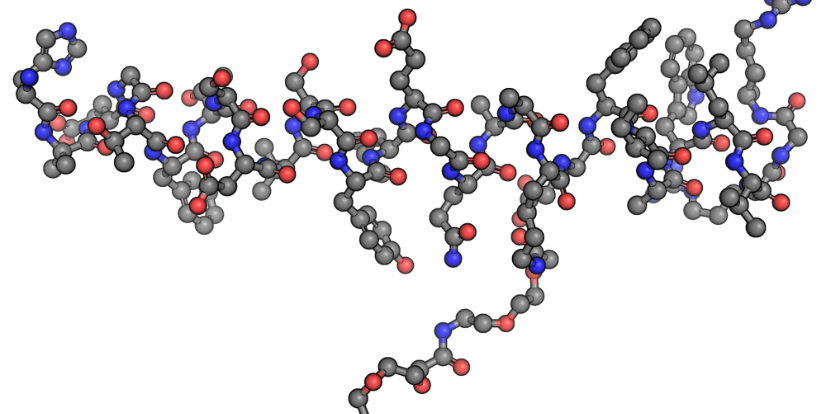Do you always find yourself searching online for ways to lose weight fast but fail to find proven methods?
Our sedentary lifestyle and unhealthy lifestyle habits have taken a toll on our overall health and the trigger for it is generally obesity. While we all dream of shedding those extra fat pockets fast this is not always correct. Yes! You heard it right the Academy of Nutrition and Dietetics suggests that fast weight loss generally indicates muscle, bone, and water loss instead of fat loss.
However, to ensure you lose fats stored in your body you must work with a doctor who can help you stay healthy and get the nutrients you need for faster results.
How To Lose Weight Fast?
The minute you turn to Google looking for a query as simple as how to lose weight, you will get an overwhelming response about diets, supplements, and meal replacement plans that claim to ensure rapid weight loss. However, most diets, meal replacement plans, or supplements have been backed by scientific evidence to ensure their efficacy.
On the contrary, there are some strategies that are backed by science and have an impact on weight management. Exercise, tracking calorie intake, intermittent fasting, and reducing carbohydrates in the diet are some of these strategies.
Let us understand in details about these rapid weight loss methods:
1. Intermittent Fasting:
Fasting intermittently (IF) involves regular short-term fasts and eating small meals throughout the day.
According to studies short-term intermittent fasting up for to 26 weeks is as effective as a daily low-calorie diet for weight loss, according to several studies.
Intermittent fasting methods include:
- Alternate day fasting (ADF):
This means that you fast on every alternate day while eating normally on the non-fasting days. Another modified version of ADF is when people watch their calories on non-fasting days while consuming 25-30% of the body’s calorie needs on fasting days.
- 5:2 Fasting:
According to this type of intermittent fasting, you fast for 2 days after every 5 days. During the two fasting days, you must consume only 500-600 calories.
- The 16/8 method:
This type of intermittent fasting involves people fasting for 16 hours and eating for only 8 hours. For most people, this window would be from noon to 8 p.m.
2. Tracking Your Diet And Exercise:
It is important for someone who wants to lose weight to keep track of what they eat and drink each day. This can be accomplished by either keeping a journal or using an online food tracker.
Keeping track of diet and exercise may encourage behavior changes and increase motivation for weight loss.
Tracking physical activity consistently leads to weight loss. Even a simple pedometer can prove useful for weight loss.
3. Eating Mindfully:
When people practice mindful eating, they pay attention to how and where they eat their food. This can enable them to enjoy their food and may help them lose weight.
Due to busy lifestyles, most people eat quickly on the run, in the car, at their desks, and while watching TV, and are barely aware of what they are eating.
Mindful eating techniques include:
- Eat at a table, preferably while paying attention to the food.
- Turn off the TV, laptop, or phone while eating to avoid distractions.
- Slowing down while eating can help with weight loss, as it gives a person’s brain time to recognize the signals that they are full, which can help prevent overeating.
- You should choose foods that contain nourishing nutrients and foods that will satisfy you for a long time rather than just a few minutes.
4. Eating Proteins for Meals:
Protein reduces the hunger hormone ghrelin and increases the satiety hormones peptide YY, GLP-1, and cholecystokinin by regulating appetite hormones.
High protein breakfast helps you stay full and satiated for long.
A high-protein breakfast includes eggs, oats, nut and seed butter, quinoa porridge, sardines, and chia seed pudding.
5. Cutting Back On Sugar And Refined Carbohydrates:
Consuming foods and drinks with high sugar content is often associated with weight gain and obesity.
Also consuming refined and processed food is bad for health as these kinds of food lack bran and germ which contain most of the grain’s fiber and nutrients.
Furthermore, processed food gets digested quickly thereby converting into glucose rapidly. Excess glucose in the blood leads to the release of insulin, which promotes fat storage in adipose tissue. This causes weight gain.
Whenever possible, people should swap highly processed and sugary foods for more nutritionally dense options.
Instead of white rice, bread, and pasta, choose whole-grain varieties. Whole grains are more likely to reduce hunger and increase fullness, leading to decreased calorie intake.
Snack on fruit, nuts, and seeds instead of high-sugar foods.
Swap high-sugar sodas, and drink herbal teas and fruit-infused water. You must also switch smoothies with water or milk.
6. Take Food That Is Rich In Fiber:
Fiber is a plant-based carbohydrate that cannot be digested in the small intestine, unlike sugar and starch. Fiber in the diet may increase the feeling of fullness, which could lead to weight loss.
Foods that are rich in fiber include:
- Breakfast cereals, whole-grain pasta, whole-grain bread, oats, barley, and rye are all whole-grain products.
- Vegetables and fruits.
- Pulses, beans, and peas.
- Seeds and nuts.
7. Maintain Proper Gut Health:
The role of bacteria in the gut in weight management is an emerging area of research. Human guts contain a wide variety of microorganisms, including 39 trillion bacteria. Individuals have different amounts and types of bacteria in their gut. Some types increase the amount of energy derived from food, resulting in fat accumulation.
The following foods can increase the number of good bacteria in the gut:
- With fruits, vegetables, and grains in the diet, fiber uptake will increase and gut bacteria will become more diverse.
- Fermented foods as they contain fermented microorganisms that improve gut health. Some commonly eaten fermented foods like sauerkraut, sourdough bread, kimchi, and yogurt. Studies suggest that Kimchi may have anti-obesity effects.
- Foods that have prebiotic properties help stimulate the growth and activity of some of the good bacteria that aid in weight control. A variety of fruits and vegetables contain prebiotic fiber, including artichoke, onion, garlic, avocado, chicory root, asparagus, leeks, and banana, as well as grains like oats and barley.
8. Get Adequate Sleep:
Getting fewer than 5–6 hours of sleep per night is often associated with an elevated risk of developing obesity. Inadequate or poor sleep slows down the body’s metabolism, the process of converting calories to energy. In addition to promoting insulin resistance and increasing cortisol levels, poor sleep can also lead to fat storage. When metabolism is less efficient, unused energy may be stored as fat.
Sleep duration also affects leptin and ghrelin levels, two hormones that regulate appetite. Leptin signals to the brain that the body is full.
9. Manage Your Stress:
Stress triggers the release of hormones like adrenaline and cortisol, which decrease appetite initially. However, stress can cause cortisol to remain in the bloodstream for longer, resulting in an increase in appetite and possibly more eating. During times of stress, cortisol signals the body to replenish its nutritional stores by consuming carbohydrates as fuel. The unused carbohydrates are then saved as fats in the body.
To effectively manage weight, it’s essential to address both dietary factors and stress reduction techniques. Incorporating stress management strategies, such as yoga, meditation, or spending time in nature, can complement a healthy diet and exercise regimen, promoting overall well-being and facilitating weight loss.
Conclusion:
Losing weight fast can be achieved by following a combination of strategies that are backed by scientific evidence. These include intermittent fasting, tracking calorie intake and exercise, mindful eating, increasing protein in meals, reducing sugar and refined carbohydrates in the diet, consuming foods rich in fiber, and maintaining proper gut health.
Additionally, getting adequate sleep and managing stress can also aid in weight loss. It is important to remember that sustainable weight loss takes time and effort and should not compromise one’s overall health.
Finally, consulting with a doctor or nutritionist can help create a personalized plan for safe and effective weight loss. With dedication and consistency in implementing these strategies, achieving your desired weight goal is possible.
If you too want to lose those extra pounds and are looking for weight loss clinics but are unable to find any in your vicinity we can help you. Get in touch with the best weight loss clinics with us. We at Know Your Health have collaborated with several weight loss clinics so that you get the best treatment at affordable prices.






